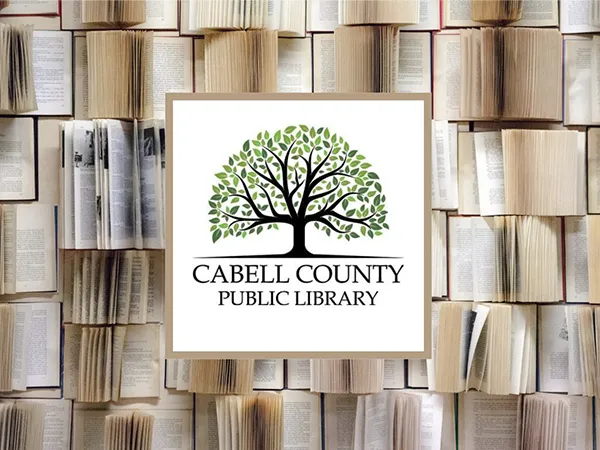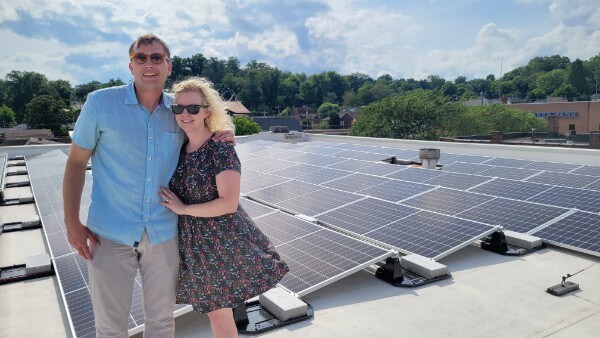- FUNDING: $34,000 from the Appalachian Solar Finance Fund
- PLACEMENT: A 109-kilowatt solar installation in Huntington, West Virginia
- COST SAVINGS: Lifetime energy savings of approximately $377,000
- IMPACT: The public library is deploying a 109 kW solar power system and made crucial roof repairs to support the solar panels.
A new solar project for the Cabell County Public Library in Huntington, West Virginia, will enhance sustainability and reduce its carbon footprint. Thanks to a generous grant of $34,000 from the Appalachian Solar Finance Fund, the library installed a 109 kW solar power system and made crucial roof repairs to support the solar panels.
“Our library system decided to go solar for a few reasons. We were facing financial hardship and wanted to reduce our utility costs. We also wanted to be more environmentally friendly. Going solar seemed like a great way to accomplish both things,” said Breana Roach Bowen, Director of the Cabell County Public Library.
This project is transforming the Cabell County Library system into an energy-efficient beacon for the community. By harnessing the sun’s power, the library can drastically reduce its reliance on expensive utility electricity.
Community Impact
One critical benefit of this project is reallocating funds traditionally spent on electricity. As a government organization primarily funded through taxpayer money, the savings on electricity bills can be redirected to enhance community services and programs. This shift ensures that more resources go directly back into the hands of community members, fostering growth and economic development.
The project should offset approximately $377,000 over the lifetime of the solar panels.

“I am so grateful for the Appalachian Solar Finance Fund. I think it is wonderful that this agency is providing the means for Appalachian organizations to go solar.” – Breana Roach Bowen
The project has garnered strong support from key decision-makers. Before applying to the Appalachian Solar Finance Fund, the team worked to secure signed contracts to install solar panels across all eight library locations.
Overcoming Financial Challenges
The library system has been impacted by the softened economy of the past few years, making the pursuit of every available cost-saving measure imperative. The Appalachian Solar Finance Fund grant was crucial in offsetting the risks and expenses associated with this project.
The library stacked federal incentives with an Appalachian Solar Finance Fund grant to make the project a reality. The organization leveraged the upfront sale value of its Solar Renewable Energy Credits (SREC) and federal tax credits to offset costs. These incentives significantly reduce the overall project cost, making it more feasible and financially sustainable.
Learn more about stacking solar project funding here >
“I would absolutely recommend that organizations apply for a Solar Finance Fund grant! If I had any advice to give, it would be to jump right in and apply,” Breana said. “I would also suggest reaching out to the SFF staff with any questions that interested parties may have. The staff were wonderful to work with. They answered all of my questions and were really helpful throughout the grant writing process.”
This solar power initiative marks a significant milestone in the community’s journey toward sustainability. By investing in renewable energy, the library reduces its environmental impact and ensures that its community benefits from financial savings, bringing a brighter, greener future.



